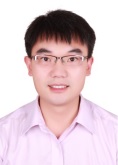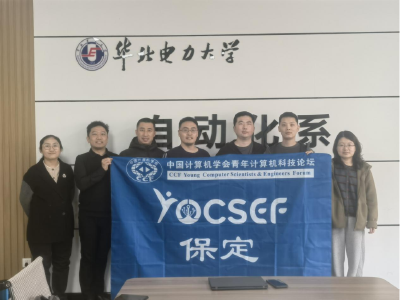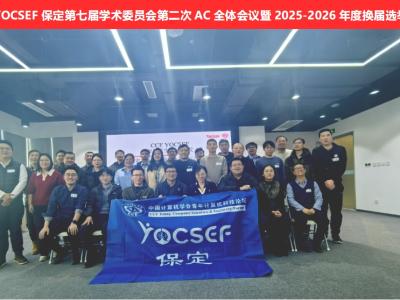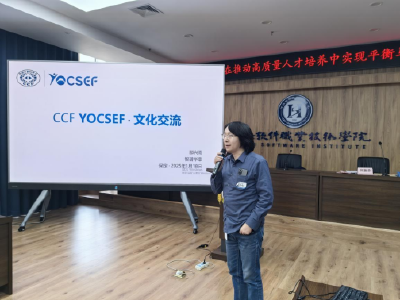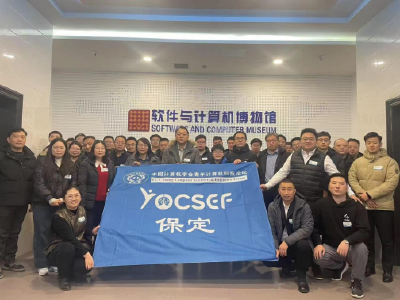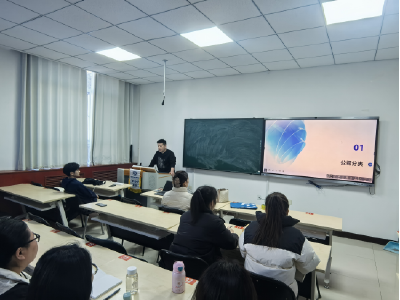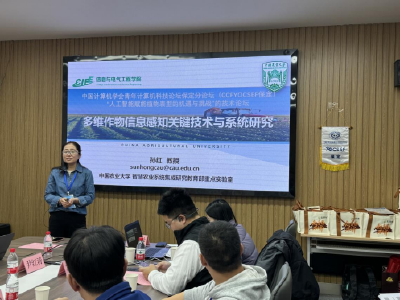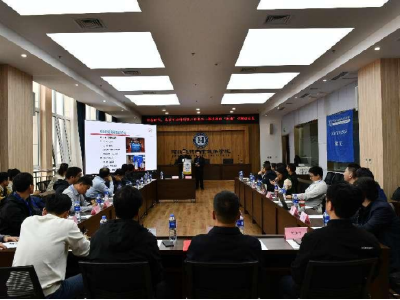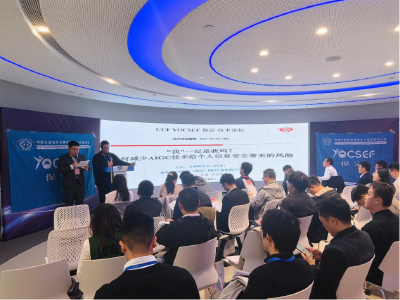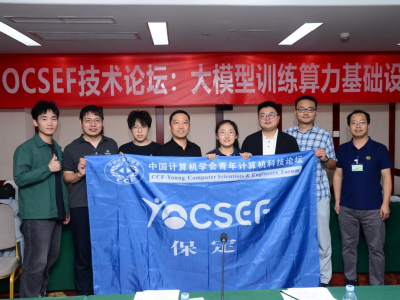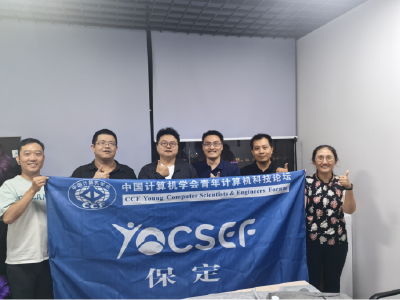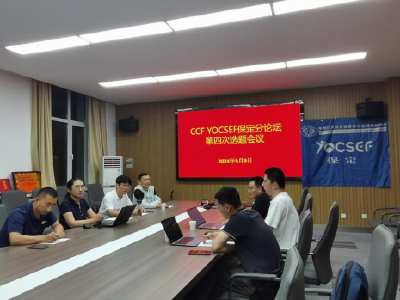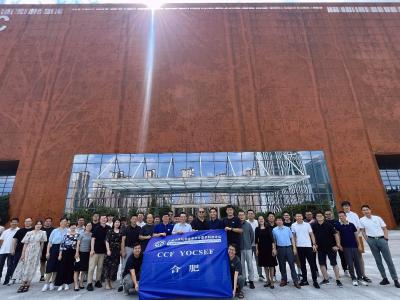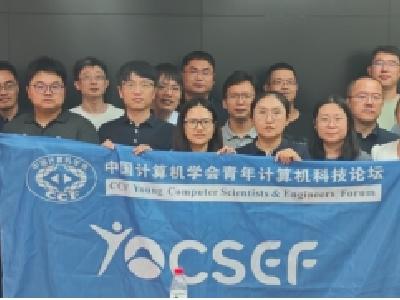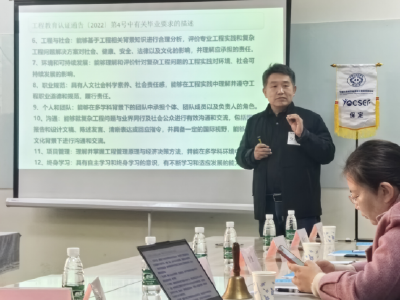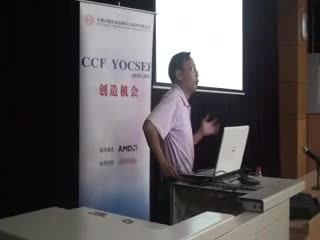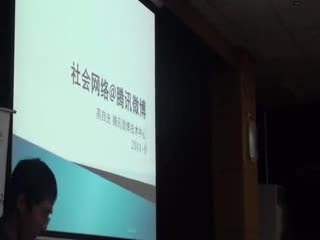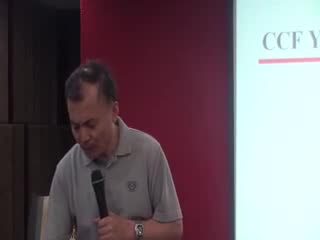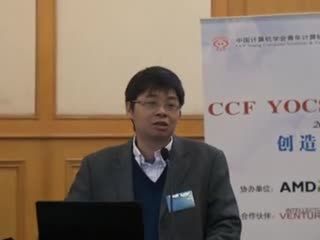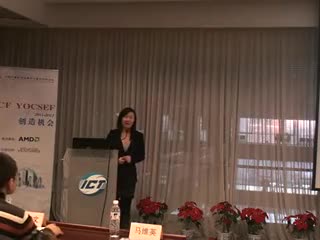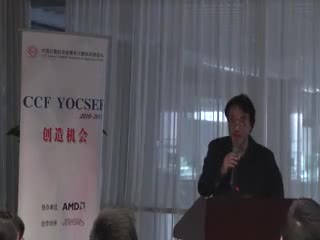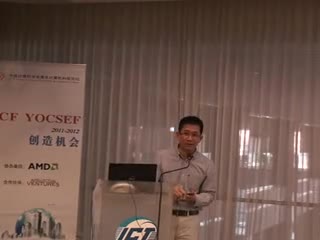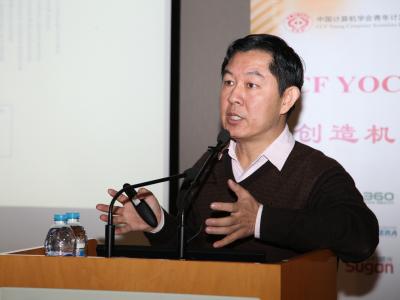中国计算机学会青年计算机科技论坛
CCF Young Computer Scientists & Engineers Forum
CCF YOCSEF长沙
报告会
中南大学校本部计算机楼212
举行专题报告会,敬请光临
报告会主题
物联网与移动计算
物联网和移动计算是当前无线网络领域两大重要课题。在实现了“万物互联”的未来,大量的计算任务会在在移动环境中产生,并需要利用移动设备进行处理。如何设计移动计算平台,以提升物联网的资源利用效率,同时加强安全性方面的保障,是当前物联网和移动计算方面的重要课题。本次青年学术论坛邀请了物联网和移动计算方面的著名青年学者,从大数据分析,隐私保护,和提升物联网频谱利用效率等多个方面探讨两个方向的融合与发展。
承办单位:中南大学信息科学与工程学院 中南大学软件学院
青年论坛程序
6月17日上午
8:50 CCF长沙分论坛代表致辞
8:55 中南大学信息科学与工程学院任炬教授主持开幕
9:00报告一
特邀讲者:张宽博士,加拿大滑铁卢大学博后
报告题目:Big Data Analysis and Security for Mobile Social Networks
9:50报告二
特邀讲者:邓瑞龙博士,阿尔伯塔大学博后
报告题目:Coordinated Cyber-Physical Attacks and Countermeasures in Smart Grid
10:40 参会人员合影
11:00报告三
特邀讲者:何建平博士,上海交通大学副研究员
报告题目:Analysis of Privacy-preserving Average Consensus: Condition and Optimal Distribution
6月17日下午
2:00报告四
特邀讲者:吴远博士,浙江工业大学信息工程学院副教授,浙江省自然科学基金杰出青年基金获得者。
报告题目:Secrecy-Based Energy-Efficient Data Offloading via Dual Connectivity Over Unlicensed Spectrums
2:50报告五
特邀讲者:周毅博士,河南大学副教授, “智能交通协同技术重点研究所”所长,河南省“车联网协同技术国际联合实验室”主任。
报告题目:智慧港口时空信息云平台研发及产业化
3:40学术研讨
执行主席:邝祝芳博士/副教授,中南林业科技大学计算机与信息工程学院
CCF YOCSEF长沙分论坛候任学术秘书
执行主席:阳旺博士/副教授,中南大学信息科学与工程学院
CCF YOCSEF长沙分论坛AC委员
执行主席:任炬博士/教授,中南大学信息科学与工程学院
CCF YOCSEF长沙分论坛委员
注:①CCF会员免费参加,往返交通费和住宿自理
②尚未加入CCF的参会人员,欢迎参会期间加入CCF,并同时加入所在城市的CCF YOCSEF
③联系人及电话: 张德宇(15116478551)
④请参会人员于4月7日前将参会回执(如表1)发E-mail至hnxx138@163.com
表1. 参会回执单

图1. 会场方位图
附一:特邀报告内容和报告人简介
特邀讲者:张宽
Dr. Kuan Zhang received his Ph.D. degree in Electrical and Computer Engineering from the University of Waterloo, Canada, in 2016. He received B.Sc. degree in Communication Engineering and M.Sc. degree in Computer Science from Northeastern University, China, in 2009 and 2011, respectively. Currently, he is a postdoctoral fellow with the Department of Electrical and Computer Engineering, University of Waterloo. His research interests include big data analysis and security for mobile social networks, mobile healthcare, cyber physical system, and cloud computing.
报告提要:Big Data Analysis and Security for Mobile Social Networks
Mobile Social Network (MSN), as an emerging social network platform, has become increasingly popular and brought immense benefits. However, big data challenges and security concerns rise as the boom of MSN applications comes up. In this talk, we will present big data and security challenges in MSNs, and introduce big data analysis solutions. First, to detect misbehaviors during data sharing, we present a social-based mobile Sybil detection scheme (SMSD). The SMSD analyzes user's social behaviors during networking and detects Sybil attackers by differentiating the abnormal pseudonym changing and contact behaviors, since Sybil attackers usually frequently or rapidly change their pseudonyms to cheat legitimate users. Then, we introduce a social network based infection analysis system, to analyze the instantaneous infectivity during human-to-human contact. We also present privacy-preserving data query and classification methods to achieve big data analysis and privacy in this infection analysis system. This talk will close with a brief discussion of future work on big data and security.
特邀讲者:邓瑞龙

Ruilong Deng received the B.Sc. and Ph.D. degrees both in Control Science and Engineering from Zhejiang University, Hangzhou, Zhejiang, China, in 2009 and 2014, respectively.He was a Visiting Scholar at Simula Research Laboratory, Fornebu, Norway, in 2011, and the University of Waterloo, Waterloo, ON, Canada, from 2012 to 2013. He was a Research Fellow at Nanyang Technological University, Singapore, from 2014 to 2015. Currently, he is an AITF Postdoctoral Fellow with the Department of Electrical and Computer Engineering, University of Alberta, Edmonton, AB, Canada. His research interests include smart grid, cyber security, and wireless sensor network.Dr. Deng serves/served as an Editor for IEEE/KICS Journal of Communications and Networks, and a Guest Editor for IEEE Transactions on Emerging Topics in Computing and IET Cyber-Physical Systems: Theory & Applications. He also serves/served as a Technical Program Committee (TPC) Member for IEEE GLOBECOM, IEEE ICC, IEEE SmartGridComm, EAI SGSC, etc.报告提要:Coordinated Cyber-Physical Attacks and Countermeasures in Smart Grid
Smart grid, as one of the most critical infrastructures, is vulnerable to a wide variety of cyber and/or physical attacks. Recently, a new category of threats to smart grid, named coordinated cyber-physical attacks (CCPAs), are emerging. A key feature of CCPAs is to leverage cyber attacks to mask physical attacks which can cause power outages and potentially trigger cascading failures. In this talk, we investigate CCPAs in smart grid and show that an adversary can carefully synthesize a false data injection attack vector based on phasor measurement unit (PMU) measurements to neutralize the impact of physical attack vector, such that CCPAs could circumvent bad data detection without being detected. Specifically, we present two potential CCPAs, namely replay and optimized CCPAs, respectively, and analyze the adversary's required capability to construct them. Based on the analytical results, countermeasures are proposed to detect the two kinds of CCPAs, through known-secure PMU measurement verification (in the cyber space) and online tracking of the power system equivalent impedance (in the physical space), respectively. The implementation of CCPAs in smart grid and the effectiveness of countermeasures are demonstrated by using an illustrative 4-bus power system and the IEEE 9-bus, 14-bus, 30-bus, 118-bus, and 300-bus test power systems.
特邀讲者:何建平
Jianping He is currently an associate research fellow in the Department of Automation at Shanghai Jiao Tong University. He received the Ph.D. degree in control science and engineering from Zhejiang University, Hangzhou, China, in 2013, and had been a research fellow in the Department of Electrical and Computer Engineering at University of Victoria, Canada, from Dec. 2013 to Mar. 2017. His research interests include the control and optimization of cyber-physical systems, the scheduling and optimization in VANETs, security and privacy in distributed networks and the investment decision in financial market and electricity market. Dr. He serves as an Associate Editor for the KSII Transactions on Internet and Information Systems. He was also a Guest Editor of the International Journal of Robust and Nonlinear Control, Neurocomputing, and the International Journal of Distributed Senor Networks. He was the winner of Outstanding Thesis Award, Chinese Association of Automation, 2015.
报告提要:Analysis of Privacy-preserving Average Consensus: Condition and Optimal Distribution
The goal of the privacy-preserving average consensus (PPAC) is to guarantee the privacy of initial state and asymptotic consensus on the exact average of the initial value. This goal is achieved by an existing PPAC algorithm by adding and subtracting variance decaying and zero-sum random noises to the consensus process. However, there is lack of theoretical analysis to quantify the degree of the privacy protection. In this work, we analyze the privacy of the PPAC algorithm in the sense of the maximum disclosure probability that the other nodes can infer one node’s initial state within a given small interval. We first propose a new privacy definition, named (ϵ,σ)-privacy, to depict the maximum disclosure probability. Then, we prove that PPAC is an (ϵ,σ)-privacy algorithm, and obtain the closed-form expression of the relationship between ϵ and σ. We also prove that the added noises with uniform distribution is optimal for the PPAC algorithm to achieve the highest (ϵ,σ)-privacy. Finally, we prove that the disclosure probability will converge to one when all information used in consensus process is available, i.e., the privacy is compromised. Simulations are conducted to verify the results.
特邀讲者:吴远
吴远,博士, IEEE高级会员,浙江工业大学信息工程学院副教授,浙江省自然科学基金杰出青年基金获得者。吴远2010年获香港科技大学电子与计算机工程学系博士学位、2010年至2011年任港科大电子与计算机学系博士后研究员。吴远博士分别在美国普林斯顿大学、美国乔治亚州立大学、澳门科技大学担任访问学者;2016-2017年获得国家留学基金访问学者项目资助在加拿大滑铁卢大学进行访学研究。吴远博士长期从事无线网络资源优化管理、认知网络、智能电网研究领域内研究;发表SCI索引期刊论文40余篇,Google总引用750余次。吴远博士获得IEEE通信分会年度旗舰会议IEEE International Conference on Communications (ICC’2017)大会最佳论文奖。
报告提要:Secrecy-Based Energy-Efficient Data Offloading via Dual Connectivity Over Unlicensed Spectrums
Offloading cellular mobile users’ (MUs’) data traffic to small-cell networks is a cost-effective approach to relieve congestion in macrocell cellular networks. However, as many small-cell networks operate in the unlicensed bands, the data offloading might suffer from a security issue, i.e., some eavesdropper could overhear the offloaded data over unlicensed spectrums. This motivates us to investigate a secrecy-based energy-efficient uplink data offloading scheme. Specifically, we consider the recent paradigm of traffic offloading via dual connectivity, which enables an MU to simultaneously deliver traffic to a macro base station (mBS) over the licensed channel and a small-cell access point (sAP) over the unlicensed channel. We formulate an MU’s joint optimization of traffic scheduling and power allocation problem, with the objective of minimizing the total power consumption while meeting both the MU’s traffic demand and secrecy requirement. Despite the non-convex nature of the joint optimization problem, we propose an efficient algorithm to compute the optimal offloading solution. By evaluating the impact of the MU’s secrecy requirement and the eavesdropper’s channel condition, we quantify the conditions under which the optimal offloading solution corresponds to the full-offloading and zero-offloading, respectively. Numerical results validate the optimal performance of our proposed algorithm, and show that the optimal offloading can significantly reduce the total power consumption compared with some fixed offloading schemes. Based on the optimal offloading solution for each MU, we further analyze the scenario of multiple MUs and sAPs, and investigate how to optimally exploit the sAPs’ total offloading capacity to serve the MUs while accounting for the MUs’ corresponding power consumptions for offloading data. To this end, we formulate a total network-benefit maximization problem that accounts for the reward for serving the MUs successfully, the mBS’s bandwidth usage, and the MUs’ power consumption.
特邀讲者:周毅
男,1981年生,同济大学博士毕业,加拿大滑铁卢大学博士后。现任河南大学副教授,博士生导师,“智能交通协同技术重点研究所”所长,河南省“车联网协同技术国际联合实验室”主任。2016年2月,创办苏州溥诺斯智能科技有限公司,担任执行董事兼CEO,苏州科技创业领军人才。主要研究领域包括:CPS多维感知与融合、协作通信与协同控制、智能交通、智慧港口等。曾先后在美国密歇根大学、日本国立情报学研究所、奥地利电信研究院、中科院上海高研院等研究机构担任访问研究员,参与欧盟第七框架CVIS计划等重大国际合作项目。主持完成国家级科研课题2项,作为核心骨干参与完成国家重大专项、主题863计划、国家自然科学基金重点项目等6项,主持省部级项目、国际合作项目、企业合作项目、国防科技项目等10余项,国家授权发明专利4项。
报告提要:智慧港口时空信息云平台研发及产业化
智慧港口是指充分利用物联网、云计算、大数据决策分析与优化等先进技术,针对港口供应链各环节的关键信息进行透彻感知、广泛连接和深度计算,实现港口供应链上各种资源和各个参与方之间的无缝链接与协调联动,从而对港口管理运作做出智慧响应,形成信息化、智能化、最优化的现代港口。依托“一带一路”倡议契机,立足智慧港口建设,以北斗时空为基准,以智能服务为核心,通过CPS信息感知与融合等新一代工业物联网技术,针对“港口协同信息交互”和“多维全景精准引航”等领域开展研发,构建智慧港口时空信息云平台,提高运行效率及安全性,使港口感知更透彻、决策更智能、服务更灵活。在“一带一路”背景下,随着港口转型升级的深入推进,智慧港口作为港口提高运营效能,提升核心竞争力的重要手段,必将大有可为。
附二:执行主席简介
执行主席:邝祝芳
博士,博士后,中南林业科技大学计算机与信息工程学院副教授,硕士生导师,计算机科学与技术专业负责人、教研室主任,湖南省青年骨干教师,2015年2月至2016年2月国家公派赴加拿大维多利亚大学(University of Victoria)访学1年,CCF YOCSEF长沙AC委员,候任学术秘书(2017-),CCF网络与数据通信专业委员会委员,CCF计算机应用专业委员会委员,湖南省计算机学会理事,主要研究方向:无线网络与通信、林业物联网,计算机优化算法及应用。先后主持国家自科基金,中国博士后基金,湖南省教育厅优秀青年项目,湖南省博士后科研项目,湖南省科技厅重点研发项目等科研项目5项,作为主要研究人员参与国家自科基金,国家948项目等科研项目6项;在国内外期刊及会议上发表学术论文30余篇,其中有20多篇被SCI/EI检索,部分成果发表于《计算机学报》、《软件学报》、《通信学报》、《Wireless Networks》、《Wireless Personal Communications》等国内外重要期刊,授权国家发明专利4项;出版译著《数据挖掘原理与应用-SQL Server 2005数据库》1部;获计算机软件著作权10项;担任多个知名国际会议IEEE ICC,IEEE WCNC,及期刊《Computer Networks》,《Wireless Communications and Mobile Computing》、《计算机学报》、《通信学报》等的审稿人。
执行主席:阳旺

博士,中南大学信息科学与工程学院副教授、博士生导师,YOCSEF长沙分论坛AC委员。2004年获国防科技大学计算机科学技术专业学士学位,2011年获清华大学计算机科学与技术专业博士学位。主要研究方向为计算机网络体系结构,移动计算,大数据处理。主持国家科技支撑课题1项,国家自然科学基金青年基金1项,湖南省省自然科学基金青年基金项目1项,湖南省省自然科学基金面上项目1项;参与国家国际科技合作专项1项,国家863高技术研究发展计划课题2项;申请国家发明专利11项,获得发明专利授权6项,发表论文20余篇。曾在美国加州大学洛杉矶分校张丽霞教授领导的互联网研究实验室担任访问学者。
执行主席:任炬
博士,中南大学信息科学与工程学院教授,YOCSEF长沙分论坛委员。分别于2009,2012,和2016年获中南大学大学计算机科学与技术专业学士、硕士和博士学位。2013年至2015年为加拿大滑铁卢大学联合培养博士生。主要研究方向为物联网和边缘计算。已在IEEE TWC,TVT,TII,TETC等国际主流期刊和会议上发表学术论文30余篇,申请国家发明专利8项,获得发明专利授权2项。现任国际SCI期刊《Peer-to-Peer Networking and Applications》编委,《IEEE Network》客座编辑,IEEE VTC 2017 FALL co-track chair,担任IEEE INFOCOM 2018, IEEE Globecom 2017,WCNC 2017等国际会议程序委员会成员。










